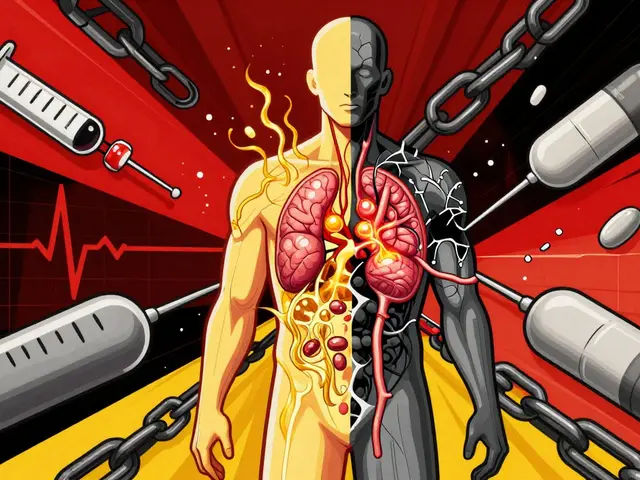MEN1 – What It Is and Why It Matters
If you’ve heard the term MEN1 and felt a bit lost, you’re not alone. MEN1 stands for Multiple Endocrine Neoplasia type 1, a hereditary condition that makes certain glands grow tumors. These tumors are usually benign, but they can mess with hormone levels and cause real health problems.
The three glands most often involved are the parathyroid, the pancreas (specifically the islet cells), and the pituitary. When any of them start acting up, you might notice calcium spikes, digestive issues, or hormone‑related headaches. Spotting the signs early can save you from a lot of hassle later on.
How Doctors Spot MEN1
Diagnosis starts with a family history. If a close relative has MEN1, doctors will likely suggest genetic testing. The test looks for mutations in the MEN1 gene, which produces a protein called menin. Even if you don’t have a known family case, recurring tumors in the three classic glands raise a red flag.
Blood work is another piece of the puzzle. Elevated calcium, abnormal prolactin, or high gastrin levels can point to the disease. Imaging studies—like ultrasound for the neck or MRI for the brain—help locate the tumors. In many cases, a combination of genetics, labs, and scans clinches the diagnosis.
Living with MEN1: Treatment and Management
Treatment isn’t a one‑size‑fits‑all plan. Surgeons often remove overactive parathyroid glands to control calcium. For pancreatic tumors, options range from medication that blocks hormone release to surgical removal, depending on size and symptoms. Pituitary tumors are usually tackled with medication first; if that fails, surgery or radiation may be needed.
Because MEN1 is a lifelong condition, regular monitoring is key. Most specialists recommend an annual check‑up that includes blood tests, imaging, and a review of any new symptoms. Lifestyle tweaks—like staying hydrated, maintaining a balanced diet, and avoiding smoking—can also help keep hormone spikes in check.
Many people wonder if there’s any cure. Right now, the goal is to manage tumor growth and hormone imbalance. Research into targeted therapies that correct the menin defect is ongoing, and a few clinical trials are looking promising.
If you’re coping with MEN1, don’t go it alone. Connect with a genetic counselor, join support groups, and keep a symptom diary. Having a clear record makes doctor visits smoother and helps you spot patterns before they turn serious.
Ready to learn more about related topics? Check out our articles on how certain drugs, like amiloride for bipolar disorder, or supplements, like Maqui berries, can affect hormone balance. The more you know, the better you can steer your health in the right direction.

Zollinger‑Ellison Syndrome Care Guide: Multidisciplinary Diagnosis, Treatment, and Follow‑Up
Practical guide to team-based care for Zollinger-Ellison syndrome: how it’s diagnosed, key tests, treatment paths, surgery, meds, and follow-up with checklists.
read more




